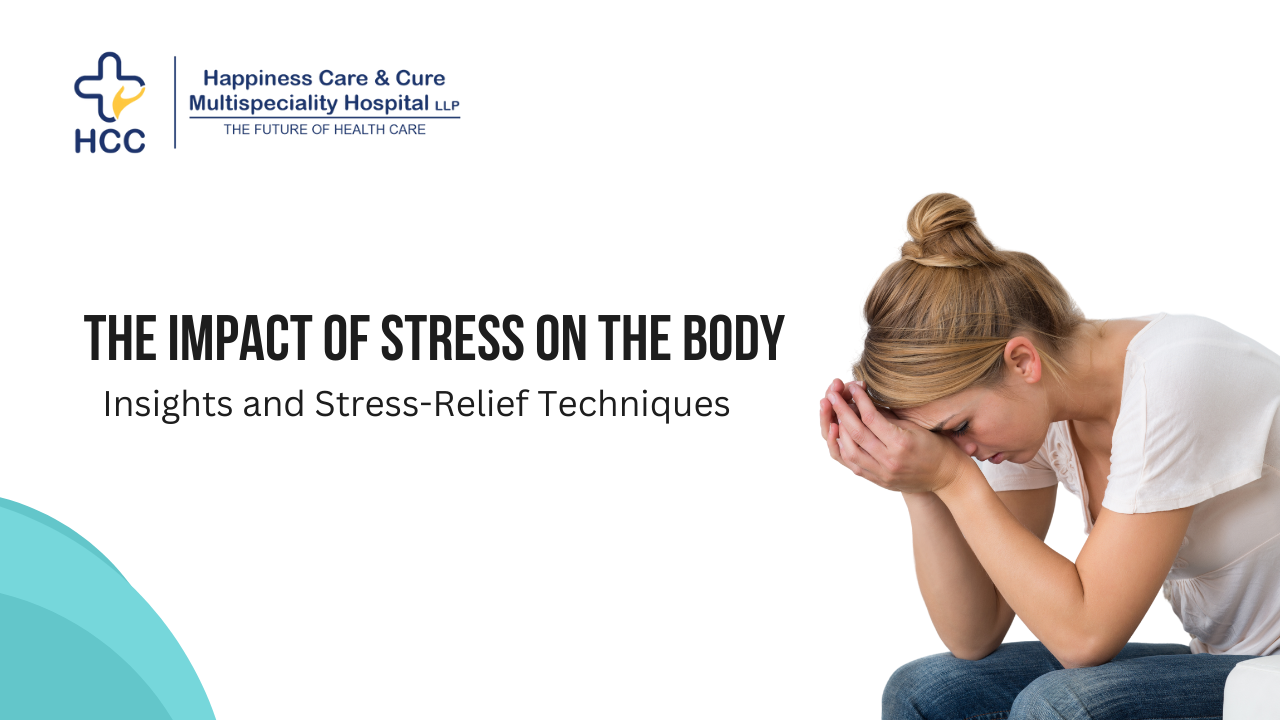
Stress, an omnipresent force in our modern lives, profoundly affects our bodies and minds. Its influence extends far beyond fleeting emotional discomfort, permeating our physical health and overall well-being. At the intersection of mind and body, stress weaves a complex web of implications, altering various physiological functions and impacting our day-to-day functioning.
Understanding the Physiology of Stress
The human body, equipped with an intricate network of systems, responds dynamically to stress triggers. When faced with stress, the body initiates the "fight or flight" response, a primal survival mechanism. This triggers the release of hormones like cortisol and adrenaline, preparing the body to confront or evade the perceived threat. However, chronic stress disrupts this delicate balance, subjecting the body to prolonged exposure to these hormones, which can lead to detrimental effects.
Impact on Physical Health
Cardiovascular System
Chronic stress contributes significantly to cardiovascular issues. Elevated levels of stress hormones can elevate blood pressure, increasing the risk of heart disease, stroke, and other cardiovascular conditions. The incessant strain on the heart and blood vessels due to prolonged stress creates an environment conducive to these ailments.
Immune System
The immune system, our defense against illnesses, suffers under prolonged stress. High cortisol levels can suppress immune function, making individuals more susceptible to infections and delaying healing processes. This weakened immunity further exacerbates health issues, perpetuating a cycle of vulnerability.
Digestive System
Stress exerts a tangible impact on the digestive system, leading to a myriad of issues such as indigestion, stomach ulcers, and irritable bowel syndrome (IBS). The delicate balance of gut bacteria crucial for digestion can be disrupted under prolonged stress, affecting nutrient absorption and overall gastrointestinal health.
Mental and Emotional Ramifications
Stress manifests prominently in our mental and emotional well-being. Persistent stress is closely linked to anxiety disorders, depression, and mood swings. The relentless pressure can impair cognitive functions, hampering decision-making, concentration, and memory retention.
Coping Mechanisms and Stress Relief Techniques
Mindfulness and Meditation
Practicing mindfulness and meditation can significantly alleviate stress. These techniques promote a state of relaxation, calming the mind and reducing the production of stress hormones. Incorporating mindfulness into daily routines cultivates resilience against stressors.
Physical Exercise
Regular physical exercise acts as a potent stress-reliever. Engaging in physical activity releases endorphins, the body's natural mood elevators, counteracting the effects of stress hormones. Exercise not only enhances physical health but also bolsters mental resilience.
Healthy Lifestyle Choices
Maintaining a balanced diet, ensuring adequate sleep, and fostering strong social connections constitute pillars of stress management. A nourished body and a supportive social network fortify an individual's ability to navigate stressful situations effectively.
Conclusion
Stress permeates every facet of our being, exerting a profound influence on our physical, mental, and emotional health. Acknowledging its pervasive impact underscores the significance of adopting proactive measures to manage stress effectively. Implementing mindfulness, regular exercise, and cultivating a healthy lifestyle empower individuals to mitigate the adverse effects of stress, fostering a harmonious balance between mind and body.
FAQ's
Q1: How does stress affect my physical health?
A1: Stress can impact physical health by elevating blood pressure, weakening the immune system, and causing digestive issues like ulcers and IBS.
Q2: Can chronic stress lead to heart problems?
A2: Yes, prolonged stress can increase the risk of heart disease and stroke due to heightened blood pressure and strain on the cardiovascular system.
Q3: What role does stress play in mental health issues?
A3: Stress is closely linked to anxiety disorders, depression, mood swings, and cognitive impairment.
Q4: How does stress affect the immune system?
A4: High stress levels can suppress the immune system, making individuals more susceptible to infections and delaying healing processes.
Q5: Can stress impact my sleep patterns?
A5: Yes, stress can disrupt sleep, leading to insomnia or restless sleep patterns.
Q6: Does stress affect weight?
A6: Stress can influence weight, as some individuals might experience changes in appetite, leading to weight gain or loss.
Q7: How does stress impact digestion?
A7: Stress can cause gastrointestinal issues like indigestion, stomach ulcers, and disruptions in gut bacteria balance, affecting digestion.
Q8: Can stress affect fertility?
A8: Chronic stress may interfere with reproductive health in both men and women, impacting fertility.
Q9: What are effective ways to manage stress?
A9: Techniques like mindfulness, meditation, regular exercise, and maintaining a healthy lifestyle can help manage stress.
Q10: Does stress affect skin health?
A10: Yes, stress can exacerbate skin conditions like acne, eczema, and psoriasis due to its impact on immune function.
Q11: Can stress impact memory?
A11: Prolonged stress can impair memory retention and cognitive functions.
Q12: How does stress affect relationships?
A12: Stress can strain relationships due to heightened emotions, communication challenges, and reduced capacity for empathy.
Q13: Is stress different for everyone?
A13: Yes, individuals experience and cope with stress differently based on various factors such as genetics, environment, and personal resilience.
Q14: Can stress be beneficial?
A14: In small doses, stress can motivate and enhance performance, but chronic stress is detrimental to health.
Q15: How does stress impact work performance?
A15: High levels of stress can lead to decreased productivity, difficulty concentrating, and increased absenteeism.
Q16: Are there age-specific effects of stress?
A16: Yes, stress can affect people of all ages, but the manifestation and impact might vary across different life stages.
Q17: Can stress cause headaches?
A17: Yes, stress can trigger tension headaches or migraines in some individuals.
Q18: Can stress lead to addiction?
A18: Some individuals may turn to substances like alcohol or drugs to cope with stress, potentially leading to addiction issues.
Q19: How long does it take to recover from chronic stress?
A19: Recovery from chronic stress varies for each person based on coping mechanisms, support systems, and lifestyle changes.
Q20: Can stress impact hormone levels?
A20: Yes, stress can disrupt hormone balance, leading to irregularities in menstrual cycles, reduced libido, and other hormonal imbalances.